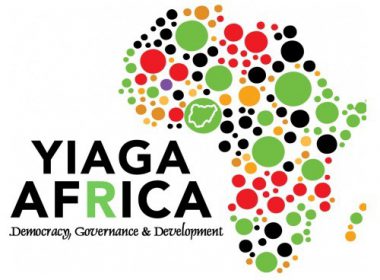
The doctrine of separation of powers among the three arms of government is one prerequisite that cannot be overemphasized in any country which practices true democracy. Thus, this doctrine empowers the arms to be distinct from each other giving the legislature the function of law making, the executive, to enforce or implement the law and the judiciary, to interpret the law. However, the doctrine further inculcate some over lapping among these arms so that the arbitrariness of each arms can be effectively checked by the other for this is essential in order to achieve good governance which is the very essence of the doctrine.
The Executive-Legislature relationship has always been one of interdependence of responsibilities and power sharing however, in most democracies they are always seen in a cat and mouse relationship and has been pejoratively referred to as deadlock. The Constitution of the Federal Republic of Nigeria 1999 as amended provided that the executive powers of the Federation is vested in the President and be exercised by him directly or through the Vice President and Ministers of the Federal Government or officers in the public service of the federation.
On the other hand, the legislative powers of the federation are vested by the constitution on the National Assembly – the Senate and the House of Representatives. Also, the National Assembly are empowered to make laws for the peace, order and good government for the Federation. Likewise the constitution also vests the legislative powers of each State in the House of Assembly of the State which is empowered to make laws for the peace, order and good government for the State.
Nevertheless, since time immemorial, the nation has at different point witnessed unhealthy relationship between both arms of government which has been characterized by mutual suspicion, distrust, acrimony, intimidation, political rivalry and unnecessary bickering. While some were resolved amicably, some went ahead till the end of their tenure which was experienced by what was displayed between the 8th National Assembly and the Executive which led to several controversies amounting to some commentators stating that these disparities between the two arms affected their perceived performance. For instance, the period between 1979 and 1983, during Nigeria’s second republic was marked with unhealthy rivalry and competition for supremacy between the National Assembly and President Shehu Sagari who was often tensed with the legislature. There were various accusations by both arms of government of the other of going beyond constitutional responsibilities and major conflict was the one which occurred in Kaduna State where the PRP governor had a perennial conflict with the NPN dominated House of Assembly over programs and orientation. The relations became increasingly uncompromising, as the House perennially rejected Governor Balarebe Musa‟s political nominees. This culminated in his impeachment and removal from office by the NPN House in June 1981.
Thus the 8th NASS is no exception as the arm and the executive also had several contentious issues following the emanation of Senator Bukola Saraki as the President of the Senate as against the candidate desired by the All Progressive Congress (APC) leadership. This led to a lot of controversies and the two arms of government had to spend considerable amount of time establishing its independence and legitimacy and authority. Some parts of their major issues include but not limited to the following;
The passing of the 2017 budget had several reoccurring delay as the current face off is a different one that gave the law makers an edge over the executive as the budget has to be approved by the arm before it can be passed by the executive.
Another issue was the rejection of the nomination of Ibrahim Magu as Chairman of the Economic and Financial Crimes Commission (EFCC) by the Senate on the ground of lack of integrity as the Department of State Services (DSS) were investigating him on some high profile files found in his residence, his purchase of his official residence and his past record as head of the EFCC’s Economic Governance Unit and concluded that base on security reports available, the senate cannot proceed to confirm Magu despite endorsement by President Buhari.
From the foregoing, the effect of the disparity between the two arms of government often leads to abuse of power which in turn creates the possibility that the liberty and the rights of the people which is the very essence of the establishment of these arms would be violated. This is therefore a clarion call on the 9th Assembly to try as much as possible to maintain a mutual, cordial and more importantly a genuine relationship with the executive and also the Judiciary while the operating the principle of separation of power, rule of law and checks and balances in essence that the legislature would not be an extension or under the whims and caprices of the executive or in turn be hostile to the executive but will carry out their duties without fear or favour in order to uphold justice, accountability and fairness.
Lastly, I would recommend that the executive and the legislature should learn on how to tolerate each other and to adopt dialogue in resolving their conflicts instead of resulting to outright confrontation which usually stalemate policy making and implementation process. They should further engage in capacity building on basic conflict resolution and management training to enhance their conflict management skills to be able to resolve their differences amicably.
Chisom Anaduaka
Program Intern at YIAGA AFRICA Centre for Legislative Engagement
The views expressed in this article are the author’s own and do not necessarily reflect the editorial policy of Sky Daily




































